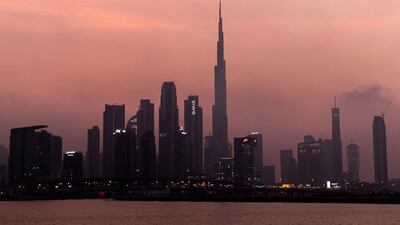The UAE has rolled out economic support packages worth more than Dh388 billion since the coronavirus pandemic began.
“These measures have contributed to business continuity, increased momentum of commercial activities and have strengthened their ability to grow and compete in various vital sectors,” said Abdulla bin Touq, Minister of Economy, on Saturday.
The government formed a committee to administer and oversee the economic support to support growth amid the pandemic.
The UAE Central Bank moved to stimulate the local economy as the outlook for the global economy darkened and introduced the Targeted Economic Support Scheme in March to boost liquidity in the financial and banking sectors.
The government unveiled other measures to improve the ease of doing business and attract foreign direct investment into the country.
The commercial companies' law was was reformed last month and the requirement for onshore companies to have an Emirati shareholder was removed.
Other initiatives include amendments to the commercial transactions and bankruptcy laws, and the allocation of grants and incentives to tourism establishments.
Bounced cheques were decriminalised, tourism sector fees and taxes were reduced and the flexibility of the labour market was enhanced.
The Dh50bn Tess programme offered zero-cost collateral funding to banks to encourage lending to the broader economy. It was extended to June 30 next year.
“We have successfully implemented the Central Bank’s comprehensive targeted economic support plan that helped the financial sector manage its liquidity and supported individual customers and companies affected by the repercussions of the Covid-19 pandemic,” said Saif Al-Shamsi, deputy governor of the UAE Central Bank.
“From January 1, 2021, banks and financing companies benefiting from the zero-cost central bank facilities will be able to grant new loans and facilities to their clients economically affected by the epidemic.”
More than 310,000 people, about 10,000 small and medium enterprises and more than 1,500 private sector companies benefited from the programme, according to the ministry.
The ministry said the first phase of the economic recovery plan was more than 46 per cent complete.
“Our efforts will continue with the concerned partners during the coming period to complete the implementation according to the timeframe specified for each stage,” Mr bin Touq said.
The pandemic has disrupted global trade and tipped the world economy into its deepest recession since the Great Depression.
The International Monetary Fund forecast that the world economy will contract by 4.4 per cent this year before making a sluggish recovery in 2021.


